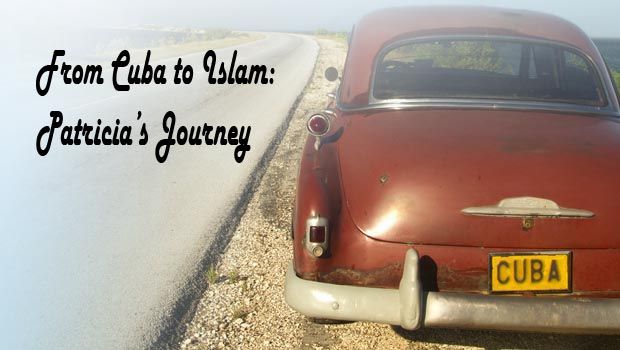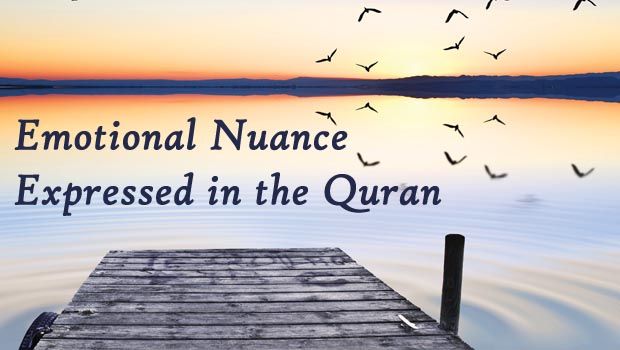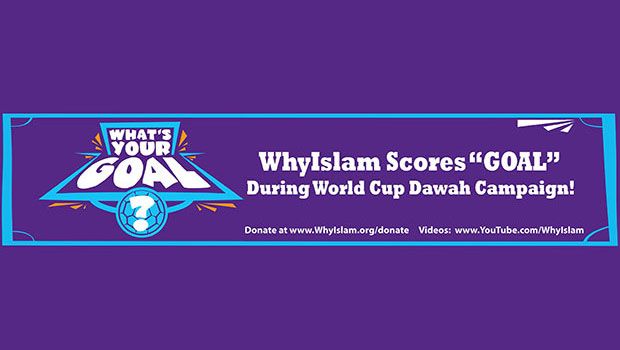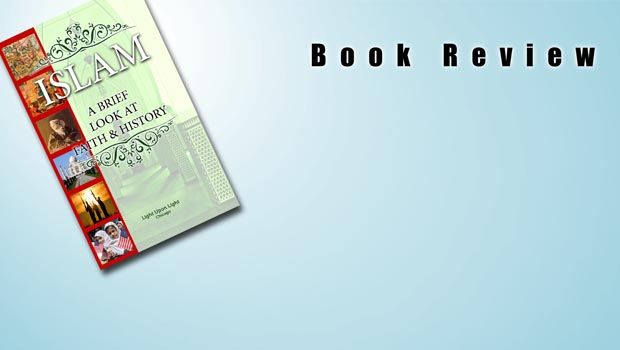I was born and raised in Cuba, a country which was officially an atheist state from 1959 to 1992, where children were taught that “there is no God” and that religion was the “opium of the masses.” To one day achieve a good career entailed abhorring religion as a “social disease” because it contradicted the Marxist philosophy promoted by the so-called socialist system.
I came home and went into my room feeling the need to put my head on the floor like I had seen Muslims do, and it felt so good that I started crying during my prostration
Although we were supposed to view religion as a “handicap to the human race,” my grandmother held quietly to her Catholic beliefs, but the example of her generous and caring nature and impeccable manners spoke volumes. My grandpa too possessed great ethics but thought himself an atheist. I believe this was largely because Christianity was the only religion he knew –his own father being a Baptist pastor- and its core creed, he felt, was an affront to human reason. He was a PhD in electrical engineering and a physics professor and he used to say the universe was way too magnificent for its Creator to, in any way, be analogous to us humans; that we are but a speck in the vastness of the cosmos and it was illogical to believe that a man, Jesus, participated in creating it (referring to the Catholic belief that Jesus is part of the triune God and equal to the Father, and took on a human nature when he entered the womb of his mother, Mary). Both my grandparents may well have been the earliest catalysts to my journey to Islam.
Though growing up pretty much without religion, I often pondered upon death. From a young age I loved reading and when I got to college, various works of literature had an impact on my thinking. Books by Hermann Hesse, Aldous Huxley, Fyodor Dostoevsky, and Carlos Castaneda became my passion. Poets such as Walt Whitman, Khalil Gibran, and Rabindranath Tagore stirred a world of wonder within my soul. A classmate once arranged a lecture by a nun who came to speak about a book I had been introduced to by my mother during childhood, The Little Prince, by the French author Exupery. I was so taken by the brilliant scholarship of the nun that soon I joined her classes on the Bible, and although my initial interest was not religious but rather historical and literary, faith eventually entered my heart, and so I was baptized in the Catholic Church. However, I was never able to perform rituals such as bowing down to a statue of Jesus or kissing its foot. My conversion had satisfied my soul to some extent, but that was just the beginning of a long journey.
While a Catholic, I started attending lectures about spirituality and comparative religion as I was still thirsty for deeper understanding. I found a yoga center and attended classes on Hinduism. Some of what I learned in my various pursuits I would dismiss, and some things fascinated me. At one point I also began taking lessons about Rosicrucianism, the teachings of a philosophical secret society, often linked to Freemasonry, which is supposedly built on esoteric ancient truths that provide knowledge of the universe and the rules governing it, as well as of the spiritual realm. I went as far as my first initiation which terrified me, and now I understand those occult rites may well involve demonic beings of the unseen coming to this dimension through human beings. Allah knows best. I abandoned Rosicrucianism but continued to practice yoga, meditating regularly. Reading about religious topics became an obsession and I attended lectures on Orthodox Christianity, Shamanism, Kabala, Buddhism, and Islam, which truly fascinated me. But because I had never seen or met a Muslim, Islam remained for a time an exclusively intellectual and insular experience for me.
While I was at the university, there was one particular event that I will never forget. The embassy of an Arab country held an exhibit at the School of Journalism. I didn’t know what language the beautiful calligraphy on the posters was, but I looked at it with awe, unable to pull my eyes away. I kept thinking that the powerful effect of the script upon me was absolutely fascinating and, thoroughly intrigued, I hoped to one day learn that language. Subhan’Allah (glory be to Allah)! I didn’t know that I was making a dua (supplication) that Allah would one day answer. The language that transfixed my brain and eyes was precisely the one my heart could comprehend and feel so drawn to, so much at peace with.
I later moved to the United States where I found a job through a friend’s co-worker who was a Muslim, providing in-home care for an elderly Pakistani man. Although his family was not fully practicing, they went to the mosque on Fridays and prayed at home occasionally. This renewed my curiosity about Islam and I would ask them many questions. The daughter started lending me audio and video lectures by Muslim speakers and I listened to them several times, bringing me to more questions. One day she told me, “I no longer have answers to your questions,” and she introduced me to her son’s weekend Qur’an teacher, a wonderful Turkish sister who welcomed my inquisitiveness. Not only did she answer my questions, but also offered to teach me the Arabic alphabet, which I readily accepted, knowing finally that this was the language that had spoken so poignantly to me at the School of Journalism exhibit. Her and her friends soon became an active part of my life with weekly classes about the Qur’an and Islamic teachings, although I was not yet a Muslim.
During this time, I would occasionally attend a Latino church and remember one particular Sunday after the service I came home and went into my room feeling the need to put my head on the floor like I had seen Muslims do, and it felt so good that I started crying during my prostration. The Pakistani lady took me to the mosque for Jummuah (Friday) prayer a couple of times, and continued to share educational materials with me. I continued searching and studying but still had unanswered questions. My heart was not at peace as there were some stereotypes and misconceptions I had regarding women in Islam. I was shy to ask the Muslim ladies that I knew, out of fear that my questions would somehow come across as insulting to them.
In the midst of this I had to go to the immigration office in Philadelphia which was about an hour from Allentown where I was living. As I walked down a sidewalk, I saw an elderly man, standing by a door observing the activity of the city street, dressed in foreign fashion with a turban. As I walked by, I pretended not to notice him and walked a few meters past him, but then decided to turn around and walk towards him. He looked at me and said three times, “I knew you’d come back.” I was sure he was a Muslim but asked the reason for his attire to start the conversation. It was easier for me to ask this Muslim stranger about Islam’s position on women rather than my own friends. And so I did. The old man talked to me for a few minutes but then I had to excuse myself so I wouldn’t be late for my appointment. He asked for my address so he could send me some literature and about a week later I received booklets about the status of women in Islam, both in English and Spanish. I eagerly read them front to back and a new world opened before my eyes. I no longer had doubts and at that point it was all a matter of time.
During almost an entire year of being friends with Muslims, nobody pressured me in any way to accept Islam, nor did I ever feel uncomfortable or unwelcomed in any manner amongst Muslims. Quite the opposite. Then one day the Qur’an teacher asked me, very tactfully, what was preventing me from becoming a Muslim. I told her I believed Islam to be the truth and the Qur’an to be the Book of God, but that I wasn’t ready yet to put on a headscarf. I felt that if I was to become Muslim, I shouldn’t say that I believed in its Holy Book, yet disobeying its commandments. “If you have certainty,” she said, “it is best you don’t delay it, since never do we know when death can reach us. What will you tell Allah if you die now knowing Islam is the truth yet not accepting it? It’s better to die a Muslim who is doing something wrong than die as a non-Muslim.”
The next day I felt that I should not delay. I went on the computer and googled “what to say to become a Muslim.” I pulled up a couple of websites and there it was, step-by-step, clear, transliterated. I printed out the page and kneeled down to utter the words that flowed from my soul and brought tears, finally, of peaceful surrender. Yes, as a result of my journey in pursuit of truth, by God’s Mercy, I was at last a Muslim. I have been so for over 15 years now, alhamdulillah (all praise is to Allah), and I pray that so I shall remain forever.





